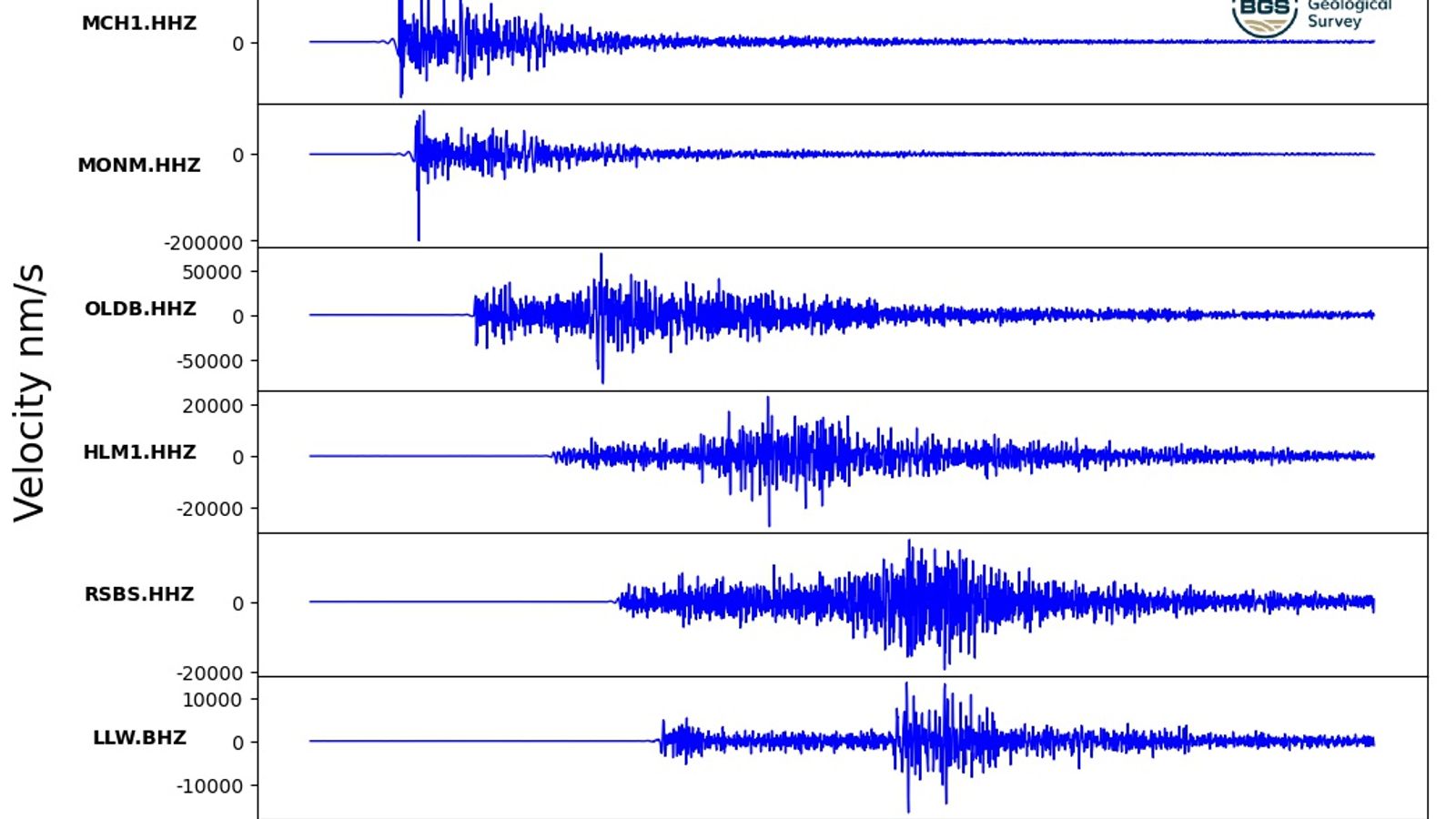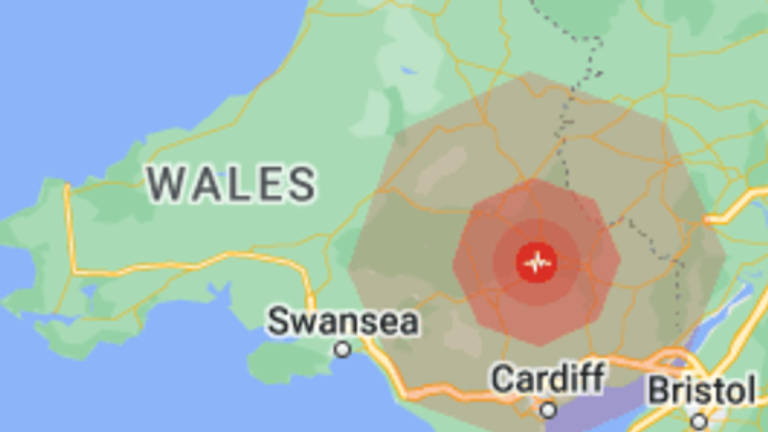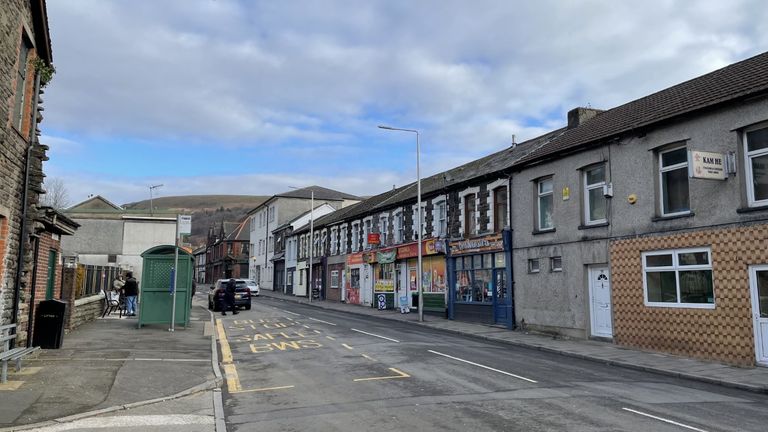A 3.7 magnitude earthquake has been recorded in South Wales – with experts describing it as the largest quake to hit the area in five years.
The earthquake occurred around 23.59pm on Friday night, according to the British Geological Survey (BGS), the UK’s main provider of quake data.
According to the BGS, the epicentre was around 10km (6.2 miles) north of the Ebbw Vale and Tredegar area, near to Llangynidr, in the Brecon Beacons.
It is a small village on the slopes of the Sugar Loaf mountain – a favourite with walkers.
The European-Mediterranean Seismological Centre (EMSC) put the location of the earthquake, recorded at a depth of around depth of two kilometres, as 12km (7.45 miles) north of Rhondda.
Google’s Android Earthquake Alerts System said the tremor was 4.2 magnitude.
The quake, which according to the BGS is the largest earthquake to hit South Wales since 2018, was reported by residents in Abergavenny, Crickhowell, Llangynidr, Llanover and Llanfoist, with many saying that furniture and windows shook.
The furthest report made to the BGS was from an area south of Cardiff, around 45km (23 miles) from the epicentre.
Matt O’Shea, from the Blaenau Gwent area, told Sky News his “whole house shook for about five seconds”, others said it felt like their property had been hit by a car.
Many on social media said they were initially unsure what had happened.
Twitter user @Loz_Coult94 said: “Thought someone was breaking into my house, no… just an earthquake IN WALES!?”
Others described objects such as bookshelves and desks moving.
“I’m in Rhymney and felt the house shake, looked online to see if anyone else did.. and it was an earthquake in South Wales. I think I need a change of trousers,” tweeted @KrissOttley.
Helen Caswell added: “Our whole house shook in Rassau, Ebbw Vale and woke my husband up!! Really frightened us.”
“I thought some idiot had driven into my front door the way my room shook,” said Jack Hill, from Risca in Gwent, on Facebook.
Cath Willcox, from Cwm in Blaenau Gwent, told Sky News: “I felt the earthquake and was really concerned. It made our house shake, it was loud and the rumbling from it was clearly felt.
“We’re four to five miles from the epicentre of the earthquake.”
She said the whole village was affected, adding: “The village is in Cwm Ebbw Vale. An old mining village used to lots of action in the height of coal mining. This is not a wake up call we wanted.”
Shelly Organ was among many residents commenting on social media, writing on Facebook: “Being in Troedyrhiw we honestly thought someone had crashed into a wall so we checked the children were still sleeping and went out to check and there were a few in the street thinking the same.
“It made the house shake a little where it felt like something happened outside, glad it didn’t though.”
Danielle Morgan said: “It definitely felt a lot worse than a light shaking in Ebbw Vale. We thought someone had crashed into the cars on our drive. Frightening! Brought the whole estate out wondering what was going on! The whole house shook to the core.”
And Tracey Mosley added: “I saw and felt it. The wall moved toward me and back again. It felt like the house would collapse.”
Lloyd Rees tweeted: “Hear me out… was there just an earthquake in South Wales? The entire house just shook!”
Sylvia Davies It hadn’t occurred to me that it might have been an earthquake. Thought a poltergeist had moved in. Even more improbable maybe. West Cardiff. Twas just a second.”
According to the BGS, the earthquake is the largest in South Wales
It is the largest earthquake in South Wales since a magnitude 4.6 earthquake near Swansea in February 2018, which the group said was felt throughout Wales.
“On average, we only get about one earthquake in Britain with a magnitude of 3.7 or greater every year,” Brian Baptie, BGS’ head of seismology told Sky News.
South Wales has been struck by several significant earthquakes in the last few hundred years, including 5.2 and 5.1 earthquakes near Swansea in 1727 and 1775.
A magnitude 5.2 earthquake in 1906 was one of the most damaging British earthquakes of the 20th Century, with damage to chimneys and walls reported across South Wales.
There are several long-active fault systems in Wales, including the Welsh Borderland Fault, which runs northeast from Pembrokeshire, in southwest Wales, to Shropshire, in England.



